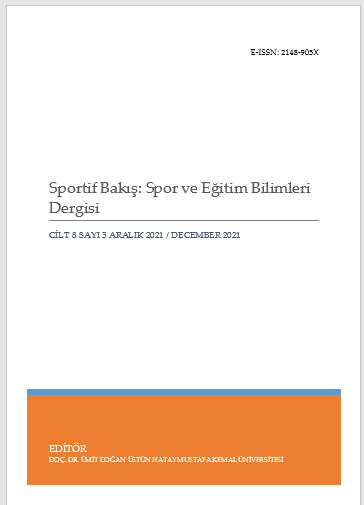Spor Bilimleri Fakültesi Öğrencilerinin Dijital Oyun Bağımlılık Düzeyleri İle İletişim Becerileri Ve Yalnızlık Düzeyleri Arasındaki İlişkinin İncelenmesi
Analyzing the Relationship between Digital Game Addiction Levels, Communication Skills and Loneliness Levels of Sports Faculty Students
Author(s): Recep Cengiz, Gökhan Çakir, Utku IşıkSubject(s): Psychology, Communication studies, Higher Education , Sports Studies, ICT Information and Communications Technologies
Published by: Bingöl Üniversitesi, Spor Bilimleri Fakültesi
Keywords: Digital game addiction; loneliness; communication skills;
Summary/Abstract: There were two main objectives of the current research. The first aim was to determine the levels of loneliness, communication skills, and digital game addiction of sports faculty students. The second aim was to determine the relationship between the loneliness and communication skill levels of students and their digital game addiction levels and to examine whether the students' being addicted to digital games created a differentiation between loneliness and communication skills. The data of the study were collected through the "Personal Information Form", "Digital Game Addiction Scale (DGAS), "UCLA Loneliness Scale" and "Communication Skills Scale. The data of 378 students who filled out the scales completely were evaluated for the study. In the analysis of the data, first, in line with the average scores of the answers given by 378 students to the scales; in addition to descriptive statistics, T-Test was used for two independent groups, Kruskal Wallis H-Test was used for groups of three or more. Pearson correlation analyzes were used to determine the direction of the relationship between the variables. Data were tested at α= 0.05 significance level. The findings of the study showed that the digital game addiction levels of students were at high levels. Parallel to this finding, 153 (40%) of 378 students were found to be addicted to digital games. The digital game addiction level (D.O.B.D) of the students studying in the recreation department was found to be significantly lower than the students studying in the coaching and management department. There was a negative, weak and significant relationship between the students' D.O.B.D and their loneliness levels. Despite this situation, whether the students were addicted to digital games or not wasn't seen as an effective factor in loneliness and communication skills. The results were compared with current studies in the literature and suggestions for future studies were presented.
Journal: Sportif Bakış: Spor ve Eğitim Bilimleri Dergisi
- Issue Year: 8/2021
- Issue No: 3
- Page Range: 318-333
- Page Count: 16
- Language: Turkish

